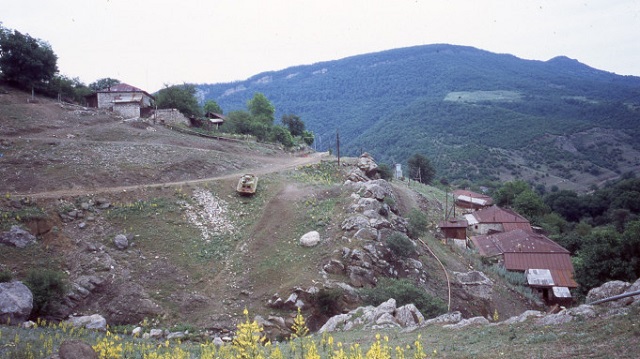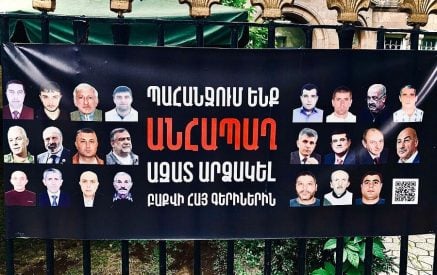BERLIN — The Berlin International Film Festival has defended its screening of film on the Nagorno-Karabakh conflict amid accusations of promoting “anti-Azerbaijani propaganda”.
Directed by Ayreen Anastas and Rene Gabri, Black Bach Artsakh reflects on the decades-long conflict between Armenia and Azerbaijan over the region of Nagorno-Karabakh, referred to in Armenian as Artsakh. Divided into 13 acts that echo the rhythm of Bach’s cantatas, the film interweaves essayistic landscape shots with a voiceover reflecting on the nature of war, identity, and belonging, as well as interviews with Armenian residents of the region in 2007.
The Berlinale’s description of the film sparked a fierce online backlash from Turks and Azeris, describing the screening as a “propaganda film” with “one-sided story telling”. The passage in question referred to the conflict in Nagorno-Karabakh in the 1990s as “a struggle for liberation and self-determination”, and called the recent 2020 war an “invasion by Azerbaijan’s dictator”.
Read also
But the festival rejected calls for the film to be excluded from the program, instead releasing an official statement on 2 March, a day after the film premiered.
In it, they said that the initial description, written by the filmmakers themselves, would be replaced by text penned by organizers outlining why they considered the film to be relevant.
“We understand that the film Black Bach Artsakh touches upon complex issues and painful memories in the conflict between Azerbaijan and Armenia,” the statement said. “[But] silencing the voices of filmmakers is not the way forward.”ave a Reply




























































